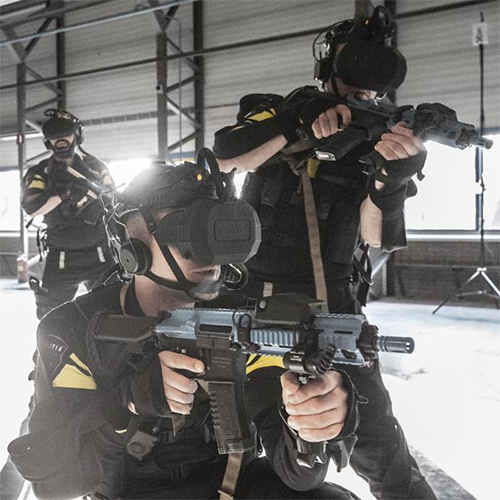
Dutch Police discover the power of VR for Scenario Based Training
Challenge
Law enforcement agencies (LEA) are tasked with many routine tasks that do not necessarily involve violence. However, there are situations that can quickly escalate, resulting in high-risk incidents with armed perpetrators. In order to respond to these incidents effectively, LEA’s need to be prepared and have the necessary training to cope with a wide array of situations.
The consequences of not being prepared can be dire, as wrong decisions can lead to fatal consequences, depression, or PTSD. To avoid such outcomes, real-life scenario-based training (SBT) is essential. This involves simulating incidents by replicating situations, using role play with actors, props such as loud music, suitable locations, and gear like FX to replicate the operational weapon with non-lethal ammunition.
Solution
While real-life SBT is effective, it suffers from growing limitations in time, budget, and safety. As a result, virtual reality (VR) SBT has emerged as a viable alternative. In some aspects, VR SBT is even better than real-life SBT. It provides realism by creating a lively environment, the possibility to adapt scenario complexity in real-time, and high-frequency repetition. However, physical interaction is not yet possible.
The Dutch Police shows how VR technology supports real-life SBT in a station-training approach. Physical and technical skills are trained in real-life, while cognitive skills are trained in VR-SBT. VR is not just a game; it is engaging and can elicit perceived stress, mental effort, and average heart rate that resemble or exceed responses in real-life SBT.
Impact
VR SBT is a scalable complexity without limits. It offers flexibility without traditional overhead in personnel for real-life training of decision making and acting under stress. It is essential for LEA’s to embrace this technology to be better prepared for high-risk incidents.